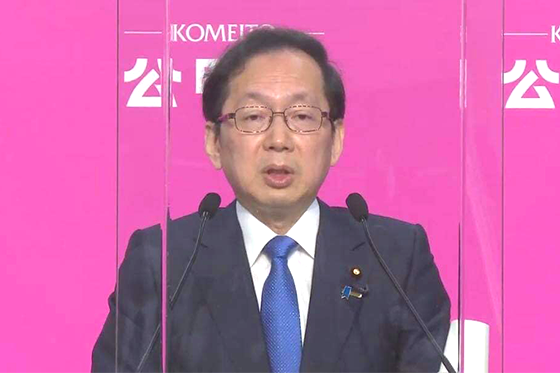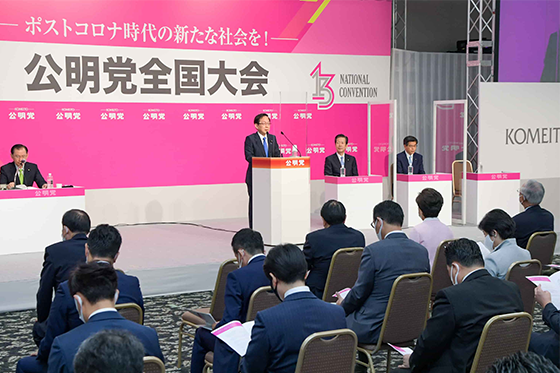
On September 27th, 2020, I was appointed Chairperson of the Policy Research Council (CPRC) of the KOMEITO. It was like a bolt from the blue to me and most Diet members of the KOMEITO.
The CPRC is one of the most important posts, and the third highest rank of the KOMEITO party following Chief Representative and Secretary General.
I suppose the CPRC is also the busiest post for the KOMEITO. Many people, such as bureaucrats and private citizens, visit my office one after another every day and I also attend various conferences of industrial associations regarding budgets and taxes. I play a central role in the decision of personnel matters for the Policy Research Council and formulate major policies of the KOMEITO which needs to be discussed on the Committee of Standing Directors. It's hard work to make decisions while considering the various opinions among directors.
Moreover, I deliberate as a representative of the KOMEITO in the Budget Committee, and hold press briefings every Wednesday where I am requested to answer any questions from political correspondents. Furthermore, I often participate in debate programs on TV.
In November, following the EU and the U.S., a third wave of novel coronavirus infections has been surging in Japan. Prime Minister Suga ordered the government to formulate additional economic policy packages in order to curtail the spread of infections, and prompt reform of private companies, leading to good economic circulation.
I immediately led the Policy Research Council to formulate additional economic policy packages including disaster prevention, which I proposed to Prime Minister Suga on November 24th.
At the same time, the 2021 budget compilation reached its closing stages; however, there were several problems. One of those was the out-of-pocket medical expenses for the elderly aged 75 and over which is currently at 10% as a general rule. Prime Minister Suga planned to establish a new 20% burden, aiming to reduce insurance premiums for the working-age generation.
However, I insisted to postpone an increase due to the spread of the novel coronavirus, and to restrict 20% burden to those who have a sufficient annual income, such as 2.4 million yen or more in a single-person household.
However, Prime Minister Suga firmly ordered Mr. Shimomura, the Chairperson of the Policy Research Council of the LDP and Mr. Tamura, the Minister of Health, Labor and Welfare to persuade me to concede to 1.7 million yen.
After 10 days of tough negotiations between us, we reached an agreement that elderly persons aged 75 and older with an annual income of at least 2 million yen would be subject to an increase in out-of-pocket medical expenses from 10% to 20%. The increase will be implemented from October 2022. As a consequence, 3.7 million people will be affected, and this will reduce the burden on the working-age generation by about 100 billion yen annually.
Media outlets paid attention to the negotiations between the three of us and it was reported on TV news every day. Through these negotiations, I aimed at three points. First was to clarify KOMEITO's position. Second was to have people understood the process of the decision. Finally, the third was to show the presence of the KOMEITO.
Before December 21, the third 2020 supplementary budget bill with 30 trillion yen and the 2021 budget bill with 106 trillion yen were decided by the Suga Cabinet. Since I had claimed a large volume of both budgets with the supply-demand balance in mind, the result satisfied the KOMEITO.
Major policies in both budgets consist of several pillars, such as countermeasures against novel coronavirus infections, digitalization, decarbonization, disaster prevention and so on. Many policies the KOMEITO had required were mostly realized.
